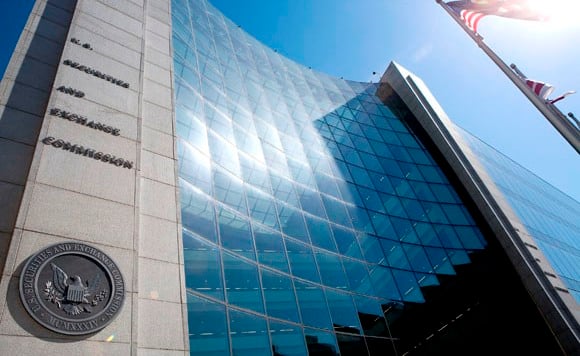Sparks are already flying from the SEC's release of proposed reforms to money market funds, which are expected sometime within the next few weeks.
When the Securities and Exchange Commission releases proposed reforms to money market funds in the next several weeks, it will ignite an explosion of industry resistance.
In fact, the sparks already are starting to fly.
One expected reform is designed to prevent an investor stampede for the exits like the one that forced the Reserve Primary Fund to “break the buck” during the 2008 financial crisis and redeem less than the traditional $1 net asset value that money funds promise.
The proposal is likely to come in two parts, according to a source familiar with its structure, who asked not to be identified.
One part will recommend a capital buffer combined with restrictions on withdrawals.
Funds would have to implement a capital buffer by injecting more corporate cash, issuing stock or debt or charging a fee to shareholders. In addition, investors could only take 95% of their money out of the funds immediately, with the other 5% available after 30 days.
Another option contained in the proposal will be to recommend letting the NAV of the funds float.
The SEC will take comments on both parts, and then the five commissioners will choose one of the two options.
The money market proposal was first reported by the Wall Street Journal.
In a November speech to the Securities Industry and Financial Markets Association, SEC Chairman Mary Schapiro leaned toward the capital buffer over the floating NAV.
All the ideas are bad, according to industry officials. They worry that the rule will drive fund sponsors out of the money markets and force companies and investors to turn to banks, where they will receive lower interest rates.
A redemption restriction would fundamentally change the value of funds for investors, said Paul Schott Stevens, president and chief executive of the Investment Company Institute.
“The consequence is that investors are unlikely to want to use this product, and intermediaries are unlikely to provide it to them,” he said.
Since 1990, investors have earned $210 billion more in dividend income from prime money market funds than they would have in bank account interest, according to Mr. Stevens.
Imposing a capital charge would undermine the advantage.
“This will be like a permanent tax on investors,” Mr. Stevens said. “That is a very significant penalty on them.”
Businesses that depend on money funds to buy their commercial paper also would suffer if the market shrinks due to reforms, according to Alice Joe, executive director of the Center for Capital Markets Competitiveness at the U.S. Chamber of Commerce.
“We have lots of Main Street companies that are worried about changes coming down the road,” she said. “It just looks like they're throwing out everything they can, just in case another financial crisis happens, and there are severe consequences with that.”
The SEC says it is trying to protect investors from a destabilizing event like the 2008 collapse of the Reserve Primary Fund. The Treasury Department had to intervene at the time to thaw the frozen credit markets.
In 2010, the SEC implemented two money market reforms. One required the funds, which typically invest in short-term debt, to use safer assets.
The other required them to invest in instruments that would provide 10% liquidity on a daily basis and 30% liquidity each week.
The SEC sees the pending proposal as a natural follow-up.
“As a second step, the chairman is advocating structural reforms to money market funds to address their susceptibility to runs and provide a buffer against losses,” SEC spokesman John Nester said in a statement.
When the latest proposal comes out, industry leaders are expected to tell the SEC that it isn't needed because the initial reforms were effective.







